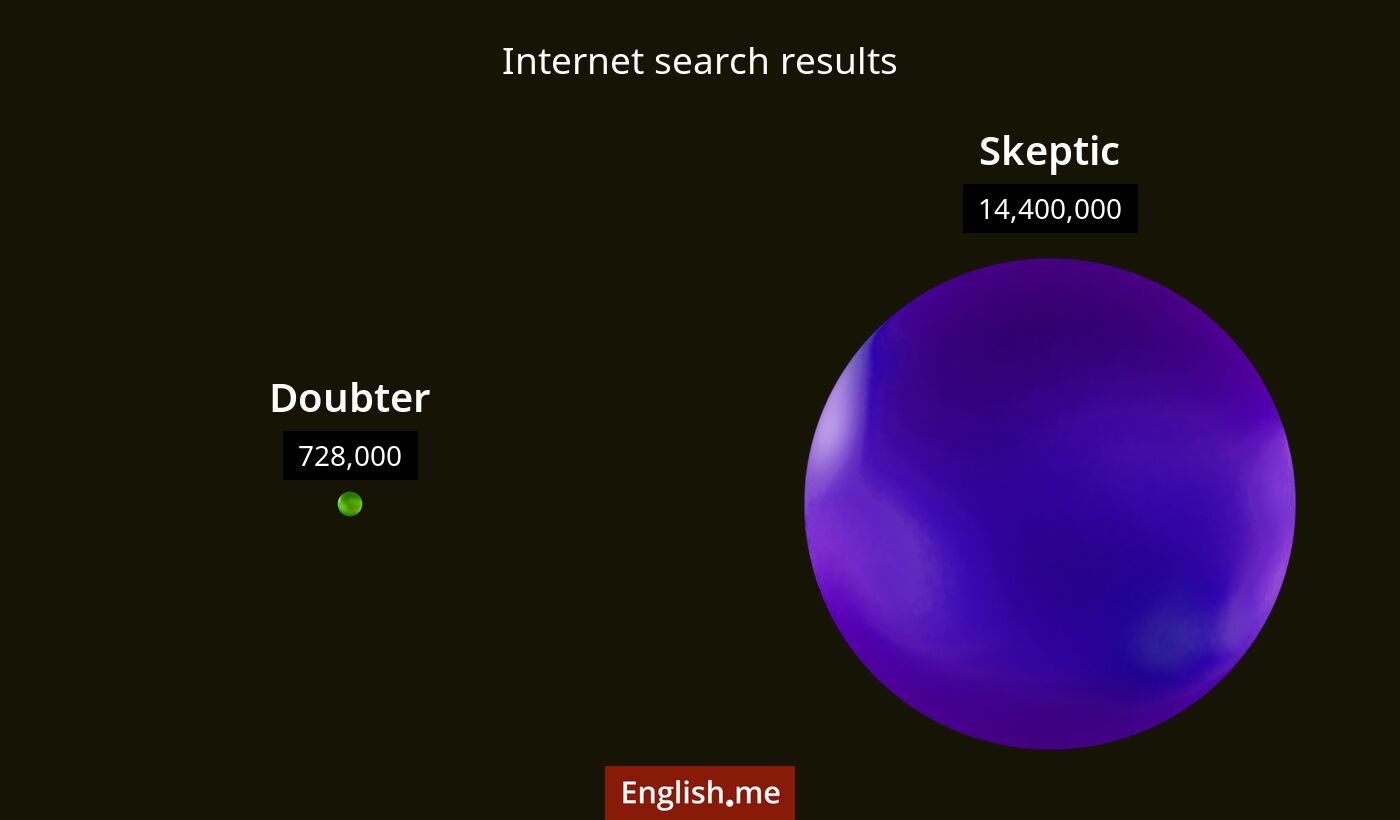"Doubter" vs. "skeptic": not quite the same
Reviewed and edited by  Lloyd Cooper 22/05/2025, 07:17
Lloyd Cooper 22/05/2025, 07:17
English.me team member

 What is similar?
What is similar?
Both "doubter" and "skeptic" refer to people who do not readily accept certain claims, beliefs, or statements without questioning, and both imply a questioning or non-believing attitude.
 What is different?
What is different?
"Doubter" simply describes someone who has doubts or is unsure, without necessarily suggesting a systematic approach. "Skeptic" refers to someone who habitually questions the validity of something and often applies critical thinking, especially relating to topics like science or philosophy.
 Which one is more common?
Which one is more common?

 Examples of usage
Examples of usage
Doubter- She was a doubter when it came to miracles.
- The doubter in the group questioned every plan.
- Despite the evidence, he remained a doubter.
- As a skeptic, he demanded proof before believing.
- The scientist was a noted skeptic of paranormal claims.
- Skeptics argued that the story was too good to be true.

 English
English español
español française
française italiano
italiano deutsche
deutsche 日本語
日本語 polski
polski česky
česky svenska
svenska Türkçe
Türkçe Nederlands
Nederlands